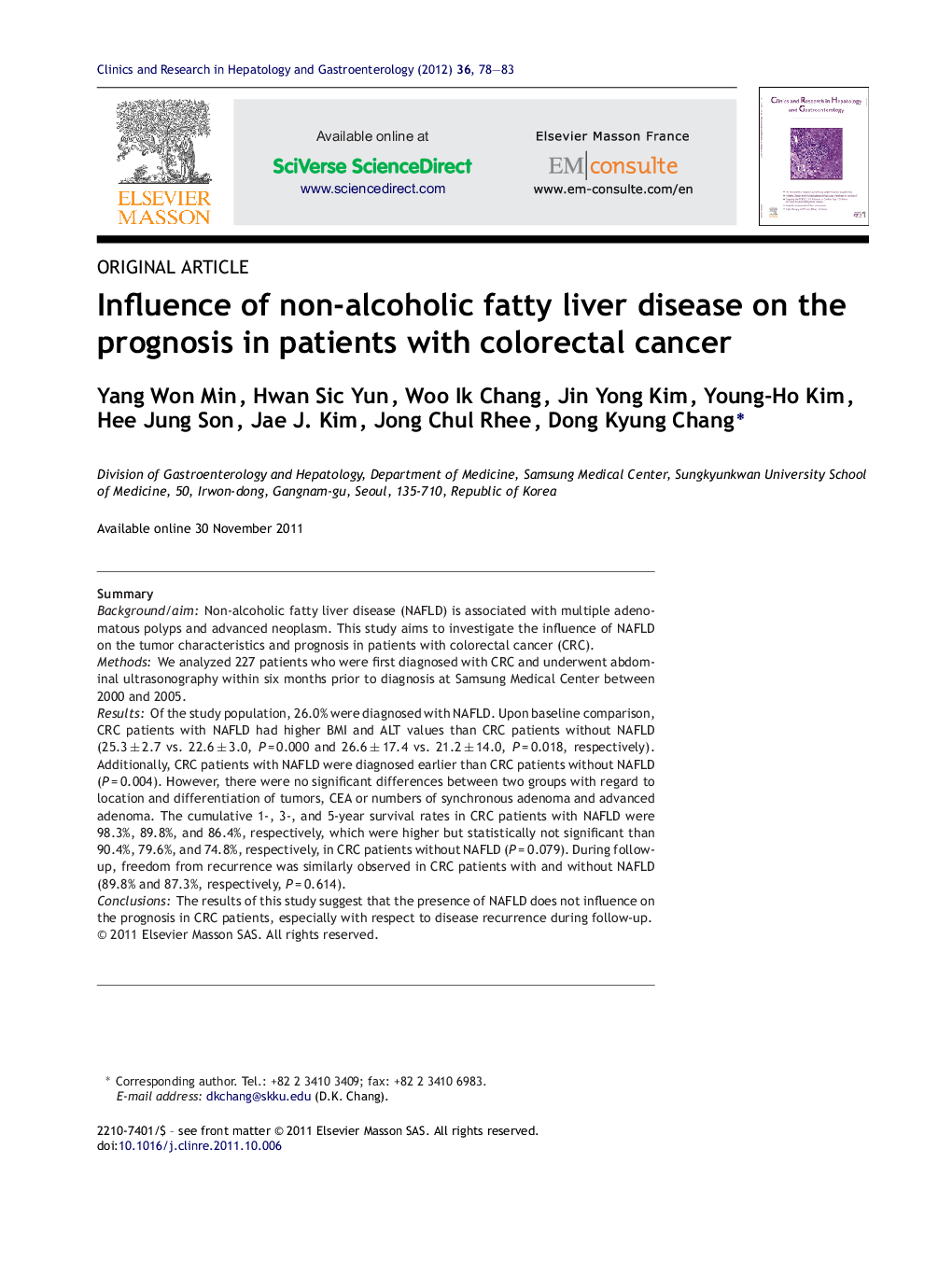| Article ID | Journal | Published Year | Pages | File Type |
|---|---|---|---|---|
| 3286797 | Clinics and Research in Hepatology and Gastroenterology | 2012 | 6 Pages |
SummaryBackground/aimNon-alcoholic fatty liver disease (NAFLD) is associated with multiple adenomatous polyps and advanced neoplasm. This study aims to investigate the influence of NAFLD on the tumor characteristics and prognosis in patients with colorectal cancer (CRC).MethodsWe analyzed 227 patients who were first diagnosed with CRC and underwent abdominal ultrasonography within six months prior to diagnosis at Samsung Medical Center between 2000 and 2005.ResultsOf the study population, 26.0% were diagnosed with NAFLD. Upon baseline comparison, CRC patients with NAFLD had higher BMI and ALT values than CRC patients without NAFLD (25.3 ± 2.7 vs. 22.6 ± 3.0, P = 0.000 and 26.6 ± 17.4 vs. 21.2 ± 14.0, P = 0.018, respectively). Additionally, CRC patients with NAFLD were diagnosed earlier than CRC patients without NAFLD (P = 0.004). However, there were no significant differences between two groups with regard to location and differentiation of tumors, CEA or numbers of synchronous adenoma and advanced adenoma. The cumulative 1-, 3-, and 5-year survival rates in CRC patients with NAFLD were 98.3%, 89.8%, and 86.4%, respectively, which were higher but statistically not significant than 90.4%, 79.6%, and 74.8%, respectively, in CRC patients without NAFLD (P = 0.079). During follow-up, freedom from recurrence was similarly observed in CRC patients with and without NAFLD (89.8% and 87.3%, respectively, P = 0.614).ConclusionsThe results of this study suggest that the presence of NAFLD does not influence on the prognosis in CRC patients, especially with respect to disease recurrence during follow-up.
